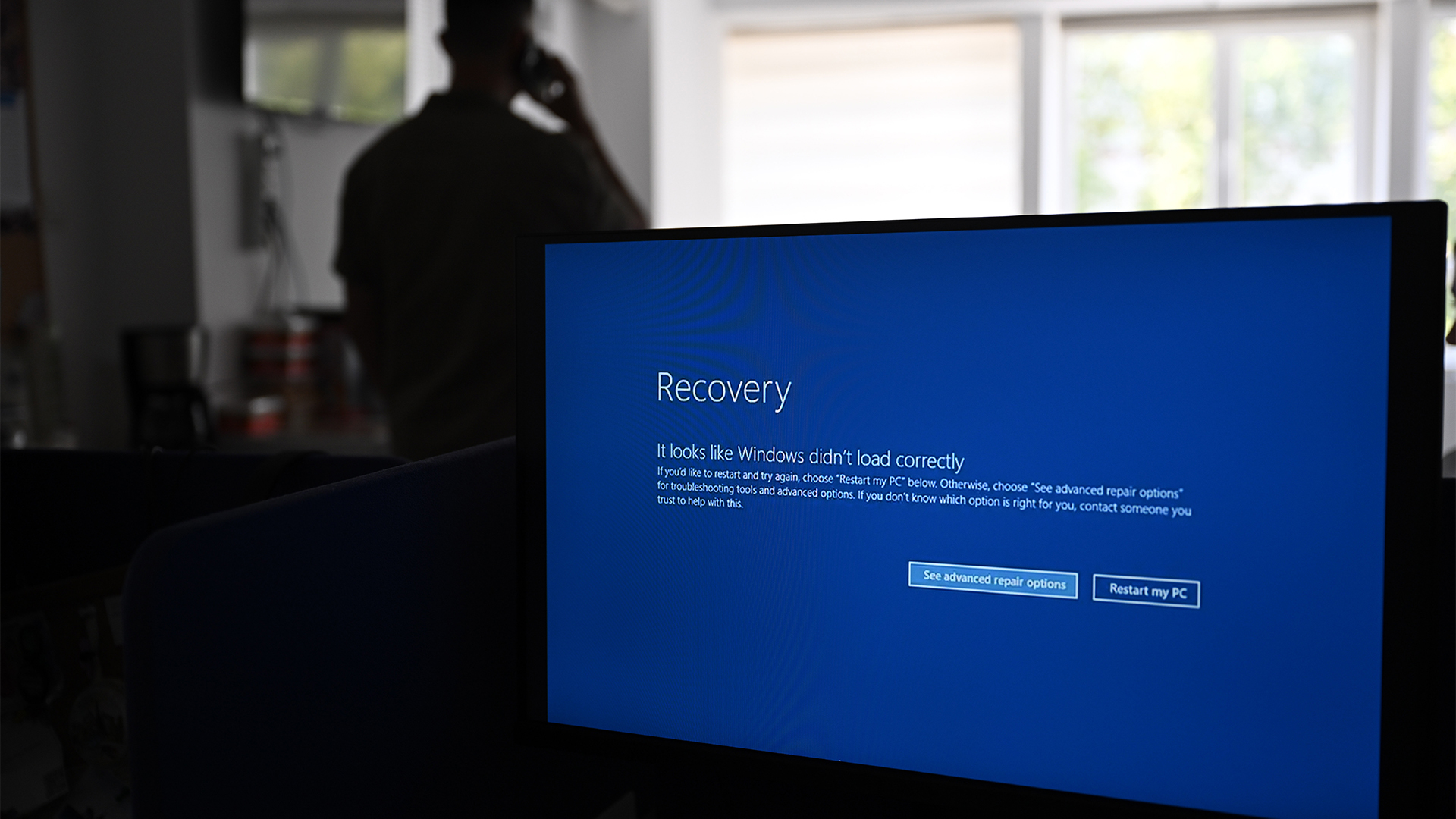Java developers are facing serious productivity issues: Staff turnover, lengthy redeploy times, and a lack of resources are hampering efficiency – but firms are banking on AI tools to plug the gaps
Insufficient documentation and bad communication are the primary factors inhibiting developer productivity


Java developers are encountering significant productivity barriers, according to new research, prompting businesses to take drastic measures to boost efficiency.
Perforce Software’s 2025 Java Developer Productivity report revealed barriers to Java developer productivity can take on many forms, but the most significant issue hurting their ability to work effectively was insufficient documentation (41%).
Lacking robust documentation means devs have to spend more time initially getting to grips with the code, architecture, or tools they are working with, bogging down their ability to actually get to the task at hand.
It can also feed into various further friction points when conducting maintenance and debugging, where the developer is not able to understand the previous decisions made during development and thus more time is taken to troubleshoot issues.
Communication issues between teams were also a common problem cited by businesses, with 38% of developers reporting it was hurting their productivity.
Bad communication can lead to improper implementation or developers misunderstanding the requirements of the project or feature they are working on, forcing them to spend time reworking and remediating mistakes.
Other commonly cited barriers to Java developer productivity were mismanaged timelines (32%), long redeploy times (29%), developer turnover (26%), and insufficient developer tools (24%).
Get the ITPro daily newsletter
Sign up today and you will receive a free copy of our Future Focus 2025 report - the leading guidance on AI, cybersecurity and other IT challenges as per 700+ senior executives
Speaking to ITPro Martin Reynolds, field CTO at Harness, said many businesses face developer productivity problems. A key factor here, he noted, is that a significant portion of software developer’s time is not spent coding but on other ancillary tasks, or even simply waiting in some instances.
“About 40% of software developer time is toil not related to writing code – whether it’s waiting for builds to complete, being on call to troubleshoot, and resolving security issues,” he explained.
“A lot of the perceived productivity problems developers face stem from process inefficiencies, bottlenecks during testing and quality control, and a lack of automation across the software delivery lifecycle (SLDC).”
Development barriers strike businesses “with equal opportunity”
Generally, half of the respondents said their companies are already planning on bolstering Java teams with new developers in the coming year, but ensuring that the productivity of these expanded teams remains high is essential.
Firstly, 34% of respondents said their employer also plans on increasing their Java tool budgets this year, but how will they decide which tools are actually helpful?
When asked how they will improve developer productivity, 47% said they had been individually tasked with investigating which tools might work best, with 38% reporting they had been put into work groups for the same purpose.
This group-based approach appears more popular at larger enterprises, with the figure rising to 49% when restricted to developers working at firms with over 1,000 employees.
The most popular method to boost developer productivity was using AI tools, cited by 50% of respondents, with code completion (60%) and refactoring (39%) being the top use cases highlighted by devs.
Notably, however, 12% of respondents stated they do not use AI tools in their workflow, with a further 12% reporting that their organization was still blocking the use of AI for development purposes.
Perforce noted that giving developers access to the latest tools will help them maintain high output as other factors continue to limit their productivity.
“[Businesses] that arm their teams with appropriate tools will be the ones that will succeed working in increasingly complex development environments and demanding business conditions.”
Regardless of how businesses choose to overcome these development barriers, the report insisted they “strike with equal opportunity against businesses of all sizes”.
It added that certain approaches may help address particular challenges, others will require a more wholesale change to the organization in order to be remediated.
“While issues like insufficient documentation can easily be addressed with AI tools, long redeploy times and insufficient developer tools require a more holistic approach to realize time savings and business value.”
MORE FROM ITPRO
- Junior software developers lack coding skills because of an overreliance on AI tools
- Flaws in a popular dev library could let hackers run malicious code in your MongoDB database
- Turns out AI isn't that popular at work – just 4% of workers use the technology in the majority of daily tasks

Solomon Klappholz is a former staff writer for ITPro and ChannelPro. He has experience writing about the technologies that facilitate industrial manufacturing, which led to him developing a particular interest in cybersecurity, IT regulation, industrial infrastructure applications, and machine learning.
-
 Bigger salaries, more burnout: Is the CISO role in crisis?
Bigger salaries, more burnout: Is the CISO role in crisis?In-depth CISOs are more stressed than ever before – but why is this and what can be done?
By Kate O'Flaherty Published
-
 Cheap cyber crime kits can be bought on the dark web for less than $25
Cheap cyber crime kits can be bought on the dark web for less than $25News Research from NordVPN shows phishing kits are now widely available on the dark web and via messaging apps like Telegram, and are often selling for less than $25.
By Emma Woollacott Published
-
 Red teaming comes to the fore as devs tackle AI application flaws
Red teaming comes to the fore as devs tackle AI application flawsNews Only a third of organizations employ adequate testing practices in AI application development, according to new research, prompting calls for increased red teaming to reduce risks.
By Ross Kelly Published
-
 ‘Frontier models are still unable to solve the majority of tasks’: AI might not replace software engineers just yet – OpenAI researchers found leading models and coding tools still lag behind humans on basic tasks
‘Frontier models are still unable to solve the majority of tasks’: AI might not replace software engineers just yet – OpenAI researchers found leading models and coding tools still lag behind humans on basic tasksNews AI might not replace software engineers just yet as new research from OpenAI reveals ongoing weaknesses in the technology.
By George Fitzmaurice Published
-
 Software security debt is spiraling out of control – remediation times have surged 47% in the last five years, and it’s pushing teams to breaking point
Software security debt is spiraling out of control – remediation times have surged 47% in the last five years, and it’s pushing teams to breaking pointNews Software security flaws are taking longer to fix than ever, with remediation times having grown by 47% in the last five years.
By Nicole Kobie Published
-
 Why the CrowdStrike outage was a wakeup call for developer teams
Why the CrowdStrike outage was a wakeup call for developer teamsNews The CrowdStrike outage in 2024 has prompted wholesale changes to software testing and development lifecycle practices, according to new research.
By Solomon Klappholz Published
-
 Why are so many AI projects destined for failure? Inexperienced staff, poor planning, and a shoehorned approach to agile development are all stifling innovation
Why are so many AI projects destined for failure? Inexperienced staff, poor planning, and a shoehorned approach to agile development are all stifling innovationWhile agile development practices work well in many circumstances, devs are encountering serious problems applying the methodology in AI projects
By Nicole Kobie Published
-
 ‘It’s time to question agile’s cult following’: Doubts cast on method’s future, with 65% of projects more likely to fail
‘It’s time to question agile’s cult following’: Doubts cast on method’s future, with 65% of projects more likely to failNews Agile development methods just aren’t delivering, and it's time devs acknowledged its failings
By Emma Woollacott Published
-
 Agile development has a security problem - and developer ‘champions’ could be the key to ensuring safer software
Agile development has a security problem - and developer ‘champions’ could be the key to ensuring safer softwareAnalysis Security considerations can be an afterthought in agile development, but there are ways to address the issue and prevent disastrous consequences
By Ross Kelly Published
-
 Agile development is fading in popularity at large enterprises - and developer burnout is a key factor
Agile development is fading in popularity at large enterprises - and developer burnout is a key factorNews Firms employing agile development practices are ‘having difficulty adapting’ in a new world of developer burnout, AI and more, a new report claims
By Steve Ranger Published